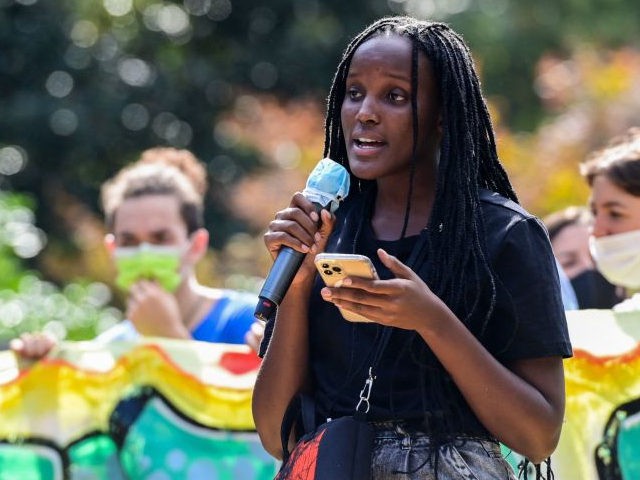ROME – A group of climate activists met briefly with Pope Francis in the Vatican Wednesday to request his backing in their crusade to halt the construction of the East African Crude Oil Pipeline (EACOP).
“This meeting with Pope Francis is vital because activists, environmental defenders and scientists have been reaching out to world leaders about the dangers the people and the planet are facing, for years now,” said Vanessa Nakate, a Ugandan disciple of Greta Thunberg and the founder of the “Rise Up” green movement.
“We’ve demanded that they take action but instead we continue to see continued investment in fossil fuels. It is time to escalate our efforts to end the age of fossil fuels and having the pope acknowledge our campaign to ‘StopEACOP’ lends even more moral authority to our demands,” she said.
The EACOP, also called the Uganda-Tanzania Crude Oil Pipeline, is intended to transport crude oil from Uganda’s oil fields to the Port of Tanga, Tanzania on the Indian Ocean for export. The 1,443-kilometer (897-mile) pipeline, which began construction in 2016, would be the longest heated crude oil pipeline in the world.
As of 2021, French oil giant TotalEnergies is the predominant owner of the pipeline (62 percent), followed by the Uganda National Pipeline Company (15 percent), the Tanzania Petroleum Development Corporation (15 percent), and the China National Offshore Oil Corporation (8 percent).
The StopEACOP group cited by Vanessa Nakate is allied to numerous other anti-climate change groups such as Extinction Rebellion, Fridays for Future, Both Ends, Fund our Future, and Inclusive Development International.
Along with its meeting with Pope Francis at the end of his weekly general audience Wednesday, the delegation’s tour across Europe has included an intervention at the U.N. in Geneva, a meeting with French government officials, climate rallies in Paris, and a meeting with representatives at BNP Paribas to demand an end to the banks financing of fossil fuels.
In her tweet following the meeting, Ms. Nakate rightly noted that “we cannot drink oil.”
What she failed to mention is that we cannot eat schoolbooks, either, yet the road to economic development is paved with cheap, available energy just as it is with education.

COMMENTS
Please let us know if you're having issues with commenting.